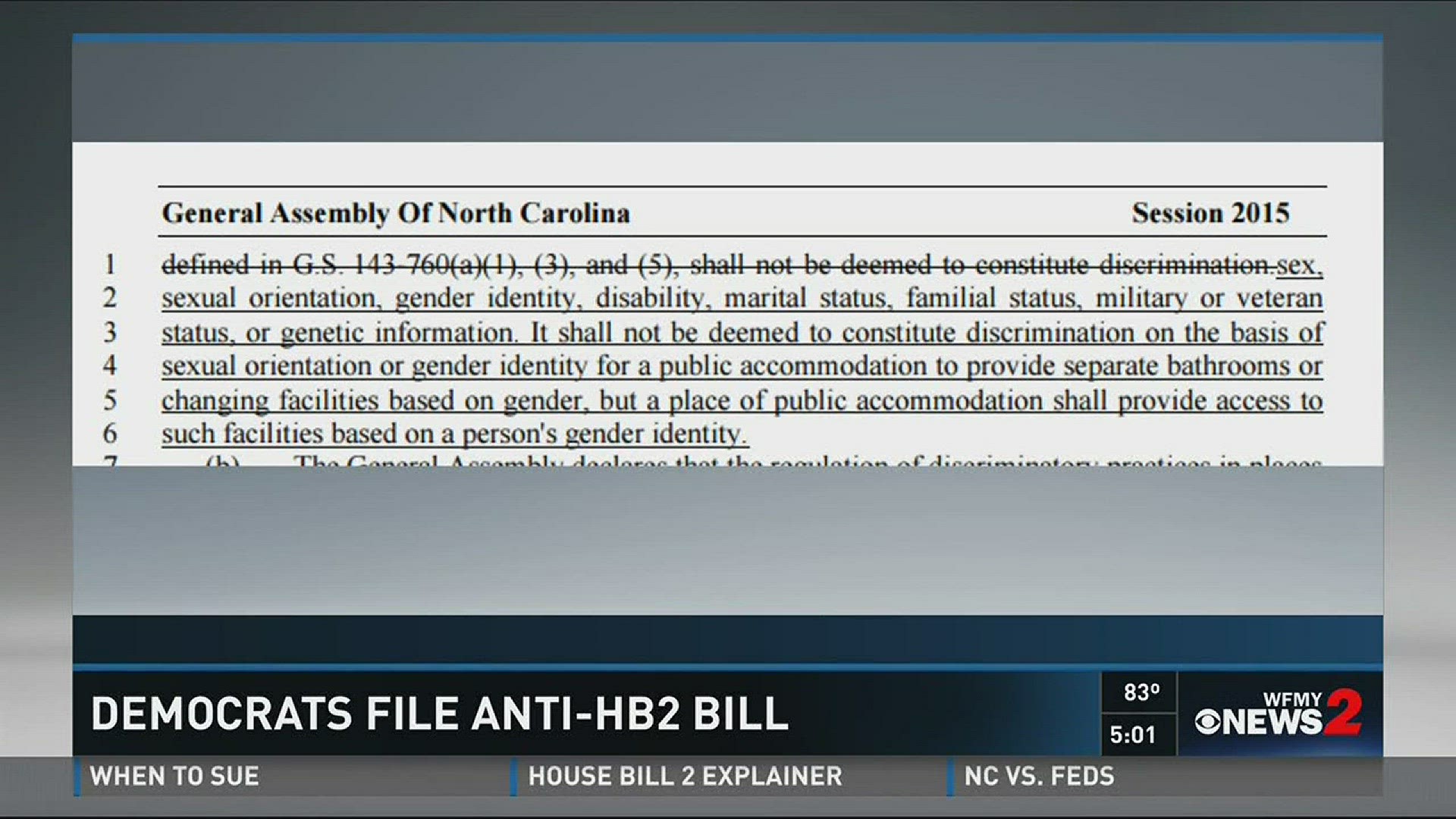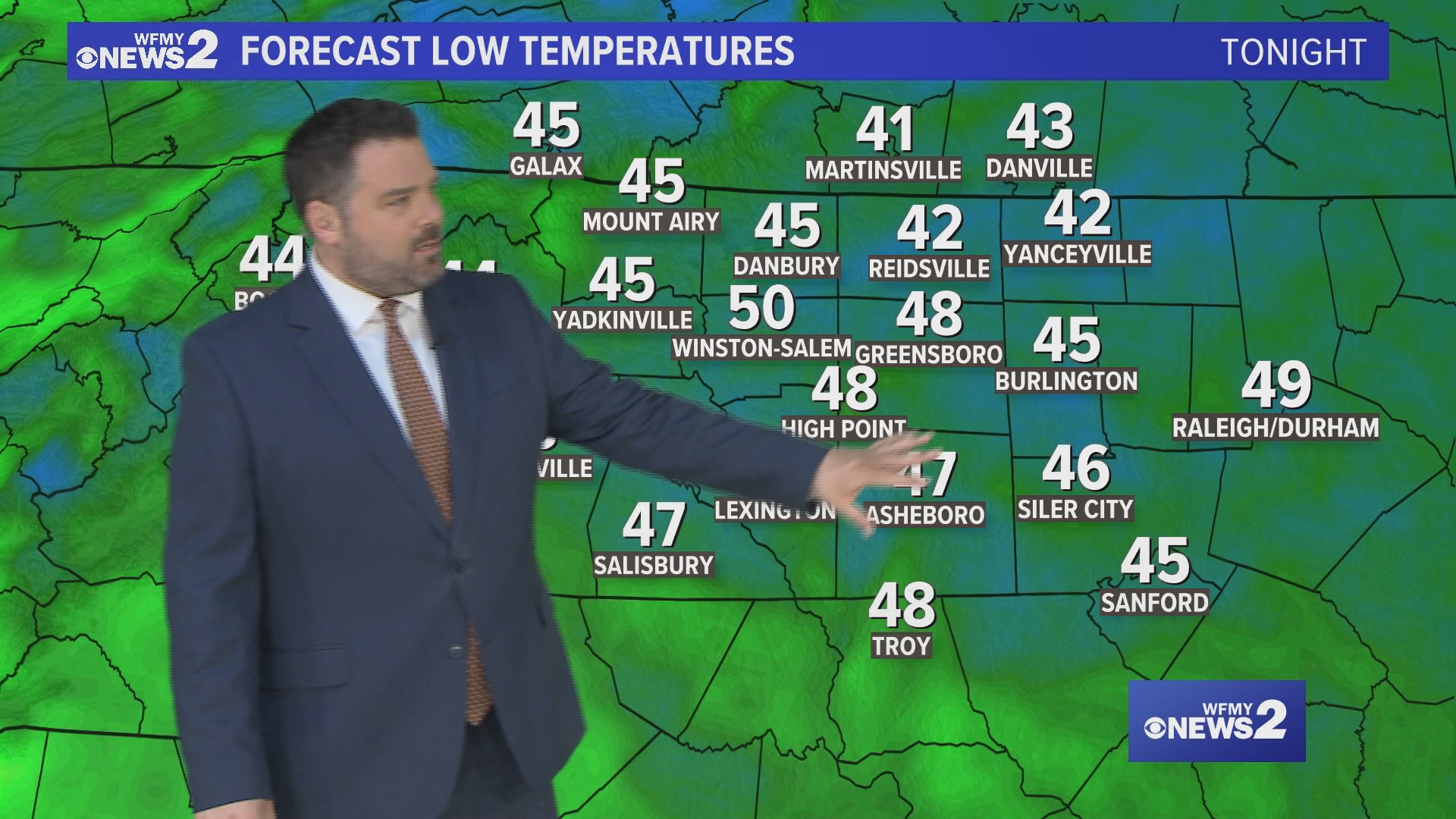GREENSBORO, N.C. -- The University of North Carolina School System's Board Of Governors met in a special session Tuesday about House Bill 2. The UNC System discussed its options after the U.S. Department of Justice sent the system a letter demanding the schools ignore HB2.
2 Wants to Know is taking an in-depth look at the controversial HB2 battle between the state and the federal government. WFMY News 2 did some digging to learn how the Department of Justice decides when to sue. In the past 3 years, WFMY found 10 cases where a state or local municipality was sued by the Department of Justice. In all cases, the DOJ argued some sort of discrimination.
North Carolina has been sued twice. First, in 2013 over the Voter ID law and on Monday over House Bill 2.
The Department of Justice is its own agency that's primary purpose is to enforce federal laws but at the end of the day, it works at the pleasure of the president. That means the president can choose how aggressive the DOJ will be on certain issues and has the final say on what cases it will go after.
"The Department of Justice decides whom they will sue almost entirely as an extension of the president's particular policy preferences," said Shannon Gilreath, law professor, Wake Forest University School of Law.
Shannon Gilreath is a professor at the Wake Forest University School of Law. He says the president has made it clear upholding the Civil Rights Act is a priority for his administration.
While the DOJ focuses on violations of that law, it seems its overlooking other federal laws that are being ignored across the country. Gilreath says that's a valid argument. Take recreational marijuana for example. Its legal in 4 states but recreational marijuana use is against federal law.
The DOJ has not filed cases against Colorado, Oregon, Washington or Alaska. Gilreath says that's at the direction of the president.
"The attorney general of course, is appointed by the president and ultimately answers to the president. So the president has decided he will allow states to be laboratories with regard to drug laws and has not aggressively enforce federal anti-drug laws against these states," said Gilreath.
As for so-called sanctuary cities, Gilreath says, "These kinds of cases are situations where cities are just refusing to act to the extent of the law. I think it's a much more difficult situation for the federal government to do anything about."
The DOJ has the power to interpret the law and its interpretation carries a lot of weight.
"The Department of Justice can certainly make a determination that House Bill 2 is unconstitutional. In fact, they have made that determination. And based on that determination, the Obama administration could begin withholding funds which are premised on North Carolina's compliance with Title IX of the Civil Rights Act," explained Gilreath.
However, there are limits to the DOJ's power.
"It is the prerogative of the courts, indeed the duty of the courts, to determine the meaning of statute. So if a federal judge decides that the DOJ is in error about its interpretation of federal law, then the judge of course controls."



